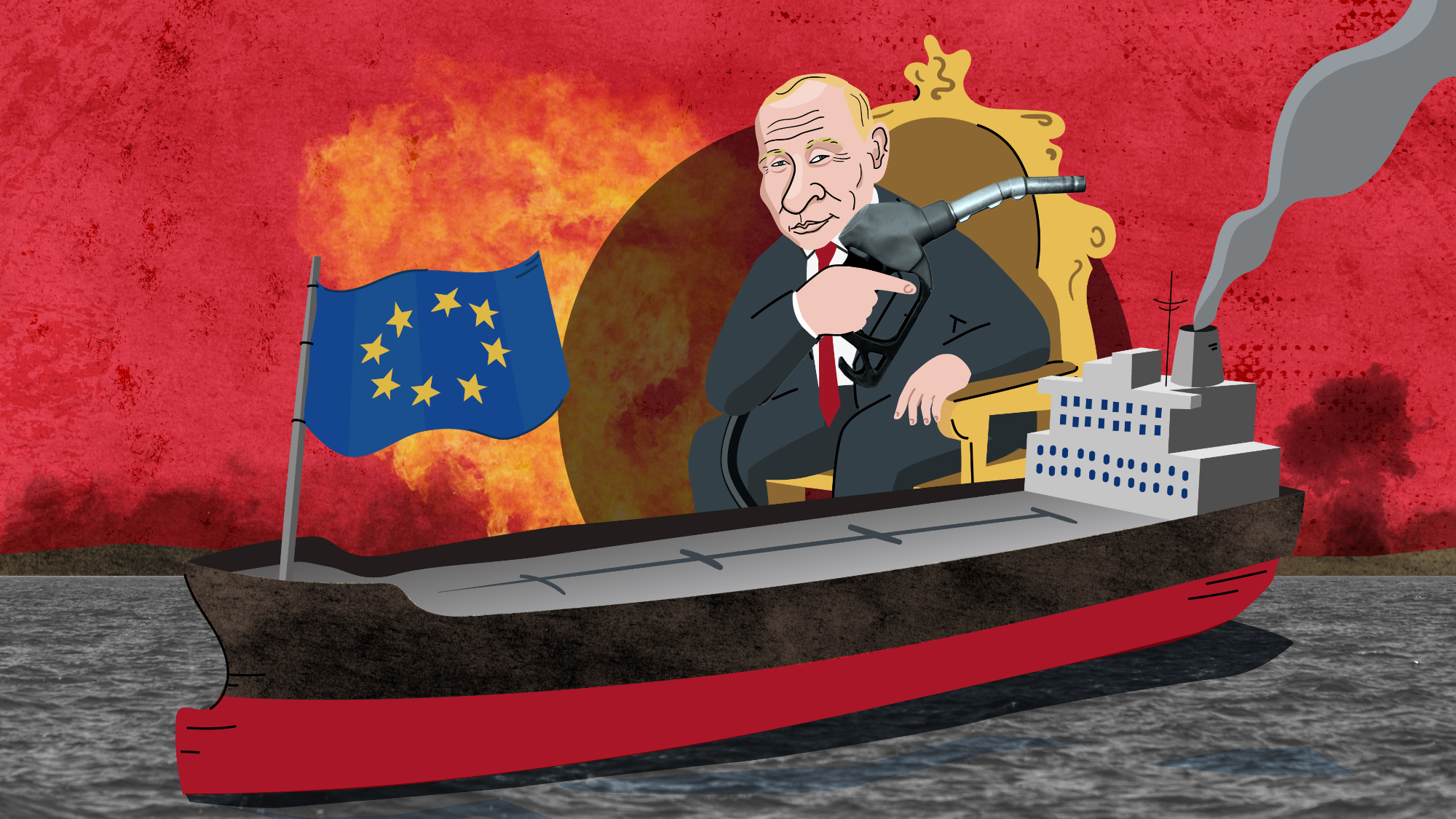When the Malibu departed Murmansk port shortly after 8.30 am on Sunday 28 August, leaving behind mild weather and steel-filled skies north of the Arctic Circle, it was weighed down with thousands of tonnes of crude oil and headed for Rotterdam, a familiar, well-trodden route for the Greek-owned tanker.
By the time the red and black-hulled liner made its way out of Kola Bay, navigated round Scandinavia, and docked in the Netherlands six days later, though, the outlook for the Malibu and the hundreds of European vessels like it had shifted once again.
The previous day, on 2 September, France, Germany, Italy and the G7 announced plans for a price cap on Russian oil exports. And on Wednesday 28 September, the EU Commission said it too will propose a price cap on Russian oil. It is the latest move by the West to stem billions of euros flowing to the Kremlin. EU lawmakers previously unveiled plans for a sanctions package on 30 May after weeks of indecision on how to target the Russian energy sector. European Council chair Charles Michel called that initial deal a “remarkable achievement”.
Under the measures, an embargo on crude oil shipments and associated products will start fully next year. All coal imports were banned from 10 August. The EU has said it will cut gas imports by two-thirds within a year, but not introduce an outright ban. And while Russia’s largest bank, Sberbank, and other financiers are now off the Swift payment system, the sanctions’ true impact won’t be felt in Moscow for some time yet.
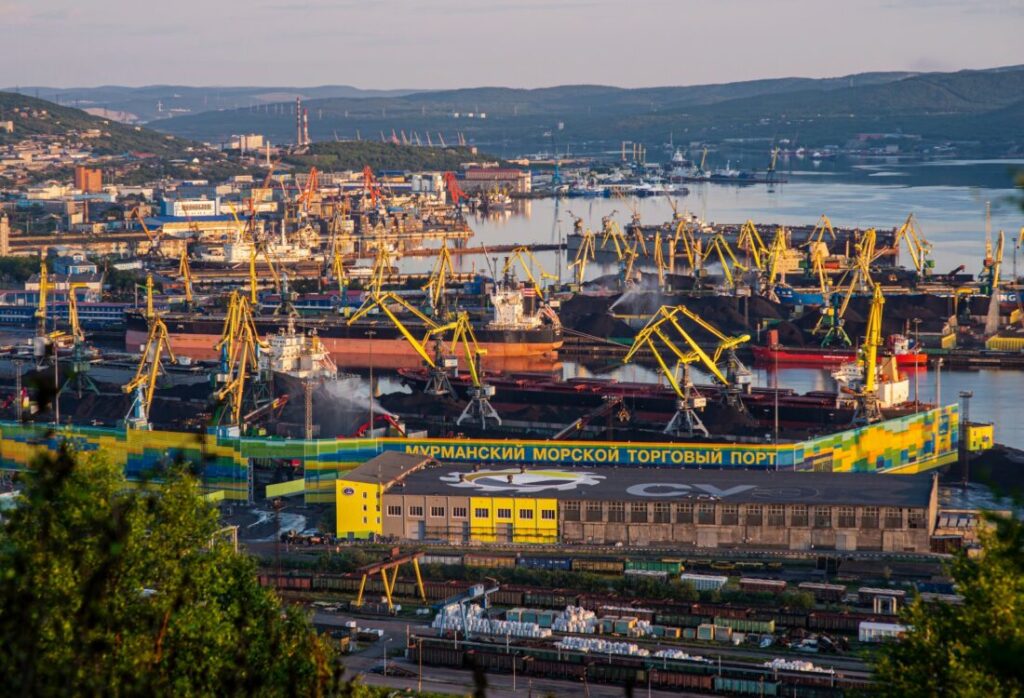
Sinking EU imports
The sluggish European response on Russian energy reflects how essential it has been as a power source for the continent. Typically, Russia accounts for roughly 45% of EU gas imports, (mainly via pipelines), 25% of imported oil and 45% of coal imports. Last year, Russia received around €400 billion from the EU for energy exports.
Between the invasion starting and the end of August, 40% (75 million deadweight tonnes (DWT) in capacity), of Russia’s seaborne fossil fuels exports were destined for the EU. This is based on analysis of data from the Centre for Research on Energy and Clean Air (CREA) and Equasis (DWT is the total capacity of a ship, including its cargo). Maritime trade is most profitable to Russia, although pipeline gas is also essential to the EU. These gas imports have dropped more than 80% since last year and are likely to be hit further after state-run Gazprom said it would switch off the Nord Stream supply.
The Malibu’s arrival at Europe’s biggest port contributed to make the Netherlands the EU’s largest importer, with oil, gas and coal shipments on vessels totaling 20.71 million DWT arriving during the period. Italy (9.06 million DWT), France (6.48 million DWT) and Germany (5.28 million DWT) were also major recipients. Researchers have estimated that European purchases can provide $285 million (€279 million) a day to the Russian state.
Unsurprisingly, imports have slumped since. July and August departures to EU ports decreased almost 50% compared to January and February, while an increasing appetite from Asia and Turkey is filling growing European gaps. With sanctions looming and future fuel sources unknown, though, a handful of EU nations continue to import ahead of a winter set to be defined by soaring prices and cost of living crises.
Imports to Italy, Greece and Denmark increased in July and August compared to the first two months of the year. Italy and Greece, along with Bulgaria, also received imports on Russian-owned vessels totaling 120,000 DWT capacity over the summer. This included deliveries from Volga Shipping, a firm owned by Russian Oligarch and outspoken critic of the invasion, Vladimir Lisin. Volga Shipping did not respond to Investigate Europe’s requests for comment by the time of publication.
European ships keep exports afloat
It is the vast network of European ships, though, which continues to prop up international trade. New analysis by Investigate Europe and Reporters United estimates that European oil, gas and coal vessels (with 101.59 million DWT capacity) departed Russia 1513 times between 24 February and 31 August. This represents 55% of the 184 million DWT globally.
Analysis of CREA and Equasis datasets reveals that Greek-owned ships accounted for 35% of the global total, with 799 journeys conducted on ships with 64.84 million DWT in capacity. Chinese vessels (20.89 million DWT) were the next largest carriers.
Among the vessels with European ownership or management links, carriers with 86 million DWT capacity are tied to EU countries. More than half of all oil shipments were on EU-connected ships.
Even after the sanctions package was announced in May, European boats conducted 570 trips (38 million DWT capacity) in the following three months. Germany, with shipments tied to more than 20 companies on ships with 9.16 million DWT capacity, was Europe’s next largest transporter.
Oldendorff is among the world’s largest bulk carrier firms. In June, the Hamburg company held an event for its 100th anniversary where the head of the family business, Henning Oldendorff, said they had helped “many relatives and families” of their Ukrainian employees settle in Germany. But between late February and August, at least 20 Oldendorff ships exported Russian coal internationally. During the period, Oldendorff ships with a capacity of 3.8 million DWT completed 43 journeys. The firm did not respond to comment requests for this article.
Another maritime family involved in the trade is Norway’s Viken Shipping. Controlled by multi-millionaire Tom Steckmest and his family, since the invasion began four of the Bergen-based firm’s ships have completed more than 20 voyages from Russian ports.
In an email to Investigate Europe, Chairman Hans Olav Lindal said three of these ships have been leased long-term to French energy giant Total since 2018 and 2019. The firm also leased ships to Litasco, owned by Russian firm Lukoil, but Lindal said these were not renewed after May 2022. Viken has previously urged its customers not to sail from Russia. “Apart from Total, our other customers have complied with our request not to send ships to Russian ports,” he said.
Total told Investigate Europe the firm has “consistently expressed its outright condemnation of Russia’s military aggression against Ukraine”. In a statement Total said it has already agreed to terminate its purchase of Russian oil and oil products and is in the process of selling its shares in two gas and oil projects in the country. “Before EU Sanctions were enacted, TotalEnergies had unilaterally decided that it will no longer enter into or renew contracts to purchase Russian oil and petroleum products, in order to halt all its purchases of Russian oil and petroleum products as soon as possible and by the end of 2022 at the latest.”
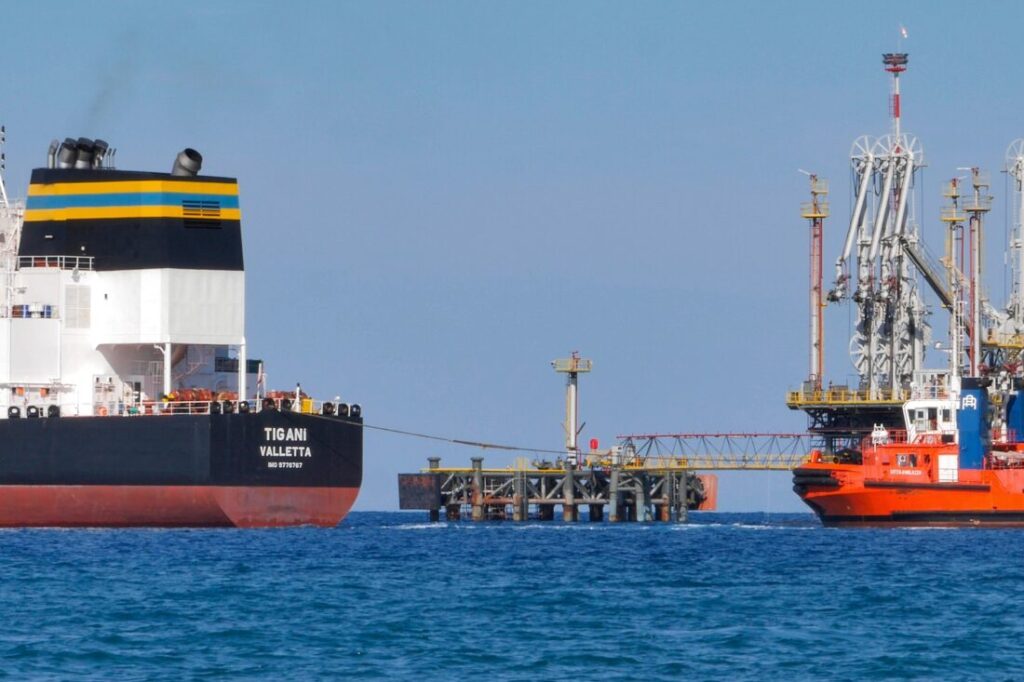
On 19 August, Viken’s last shipment of the month left Russia for Poland. Earlier in the day, the Spanish-owned Monte Ulia departed Ust’-Luga for the Netherlands. Part of the Basque-based Ibaizabal Group, the crude oil ship completed five journeys (total capacity 782,120 DWT) during the period. Owned by Alejandro Aznar Sainz (who once helped the Spanish king emeritus, Juan Carlos de Borbón, pay a multimillion-euro tax fine) and his family, the Monte Ulia’s owners are among the 200 richest people in Spain. The firm declined to comment.
A vessel destined for Spain in August was the San Felix. Managed by Gestioni Armatoriali, the largest Italian exporter (186,452 DWT capacity), data shows the tanker completed three of the firm’s five journeys during the period. Based in the eastern port city of Ravenna, the company also has real estate links. Its owners are among the investors in the construction of a new cruise port in Ravenna, alongside US giant Royal Caribbean International. The firm failed to respond to Investigate Europe’s request for comment.
Firms linked to Monaco (5.07 million DWT), the UK (4.8 million DWT), Croatia (3 million DWT) and Malta (902,055) were also prominent transporters.
Greek shipping magnates
But it is the powerful Greek shipping industry facilitating most trade. The Malibu is part of George Economou’s TMS Group. Vessels linked to the 69-year-old billionaire, who has an art gallery adorning his name at London’s Tate Modern, carried out 78 trips on vessels totaling 9.2 million DWT in capacity since the invasion started. Economou did not respond to questions for this article by the time of publication.
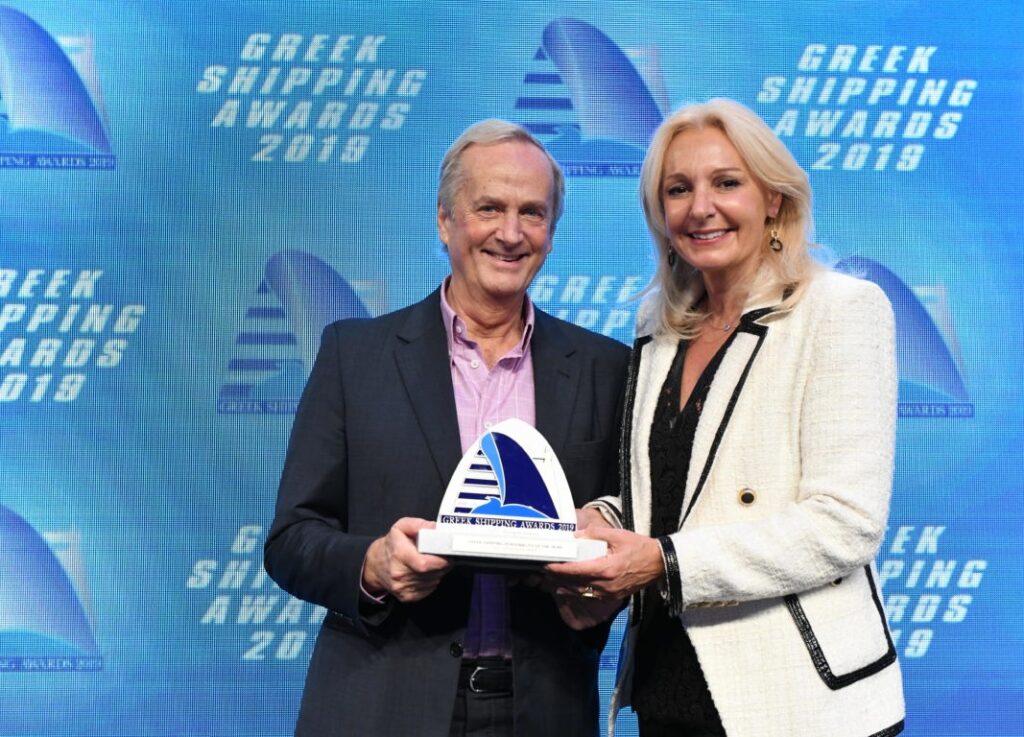
Others include the Alafouzos family (2.1 million DWT) and Vardis Vardinoyannis (1.6 million DWT). Between them they control three of Greece’s private national television stations, and while their media regularly condemn “Russia’s brutal invasion”, their businesses continue to profit from transporting fossil fuels. Neither company had responded to Investigate Europe’s requests for comment by the time of publication.
Insurers under fire
Its leverage in the sector – 30% of the world’s oil tanker fleet (based on tonnage) is in Greek hands – helped water down EU plans for a partial embargo on Russian oil – and no embargo on gas. According to newspaper Vima, the governments of Greece, Cyprus, and Malta opposed the embargo plan. The lobbying efforts, supported by Hungary, worked as the EU softened its stance by allowing shippers to continue transporting oil to non-EU countries.Ukraine has pressured the industry since the first days of the war. President Volodymyr Zelensky criticised those shipping oil from Russia in early July, with a pointed message for the influential Greek operators: “I am sure that this does not meet the interests of Europe, Greece or Ukraine.”
In March, the Ukrainian government urged the International Group of P&I Clubs (IGP&I), providers of liability cover for 90% of global seaborne cargo, “to cut off the flow of cash which is financing the mass murder of innocent people.”
CREA data shows that of 3176 shipments leaving Russia internationally during the period, an insurer is listed 2583 times. Of 15 named, the 13 IGP&I members are insurers for nearly all journeys, including the Malibu’s insurer, Gard AS, a Norwegian firm and the third largest insurer named. Asked about any role they have in helping to fund the Russian state, a spokesperson said: “We comply with the sanctions that apply at all times. At the same time, of course, we follow developments closely, and constantly make assessments related to this topic.”
Environmental campaign group Global Witness estimated that members of the UK-based IGP&I enabled the export of 40 million barrels of oil in the first month of the war. “Without that insurance, it would be almost impossible for Russia to maintain its current fossil fuel exports, the same exports funding the war in Ukraine,” Senior Investigator Lela Stanley told Investigate Europe. “The enablers of Russia’s trade in oil, gas, and coal are propping up a regime that murders innocent civilians even as it drives the climate crisis.” IGP&I did not respond to Investigate Europe’s requests for comment by the time of publication.
The new sanctions state EU firms will be prohibited from insuring Russian oil trades to third-party countries. Under G7 plans, the dominant UK sector will only be able to insure seaborne oil exports if buyers purchase within the price cap. Russia’s deputy prime minister Alexander Novak said they would refuse to deal with countries adopting price limits.

Will EU sanctions work?
Despite the sanctions, the International Energy Agency said in August that there has been “more limited declines in Russian supply than previously forecast”. Exports to major markets have plummeted by nearly 2.2 million barrels per day since February, but two-thirds have been rerouted elsewhere.
Rerouting, as well as suspect ship-to-ship transfers – where ships unload cargo onto another vessel at sea and switch off tracking systems to evade detection and country sanctions – is increasingly prevalent with Russian fossil fuels.
Dr Adnan Vatansever, Reader in Russian politics at the Russia Institute, King’s College London, says that while Europe initially adopted a “cautious approach”, major market shifts that could dent Putin’s purse are possible in the next year.
“The way the sanctions have been proposed means this will likely lead to a significant reorientation of Russian oil,” he says. “Oil will flow wherever there is someone willing to pay money. For oil, Russia’s task is easier because it has a massive surplus capacity in terms of its export infrastructure and so rerouting the oil for Russia is not really a difficult task.”
Vatansever says the success of sanctions will depend on what happens to global oil prices and whether developing nations support the price cap plans or continue to purchase at higher rates. “The goal of the price cap sanction is not to curb Russian oil exports but to curb Russian oil incomes,” the author of Oil in Putin’s Russia says. “If Russian quantities remain the same but they earn significantly less that is actually the desired outcome.”
A question of morality?
The destinations for cargo may be shifting, but one moral question remains: can shippers continue to help provide Russia with billions of euros to finance the war?
Dockers in the UK, Sweden and Netherlands all refused to unload Russian oil in recent months, but it can be a more complicated question for operators as some are on time charters agreed before the war started. While others carry cargo with spot charters – a single route – and therefore were decided after 24 February.
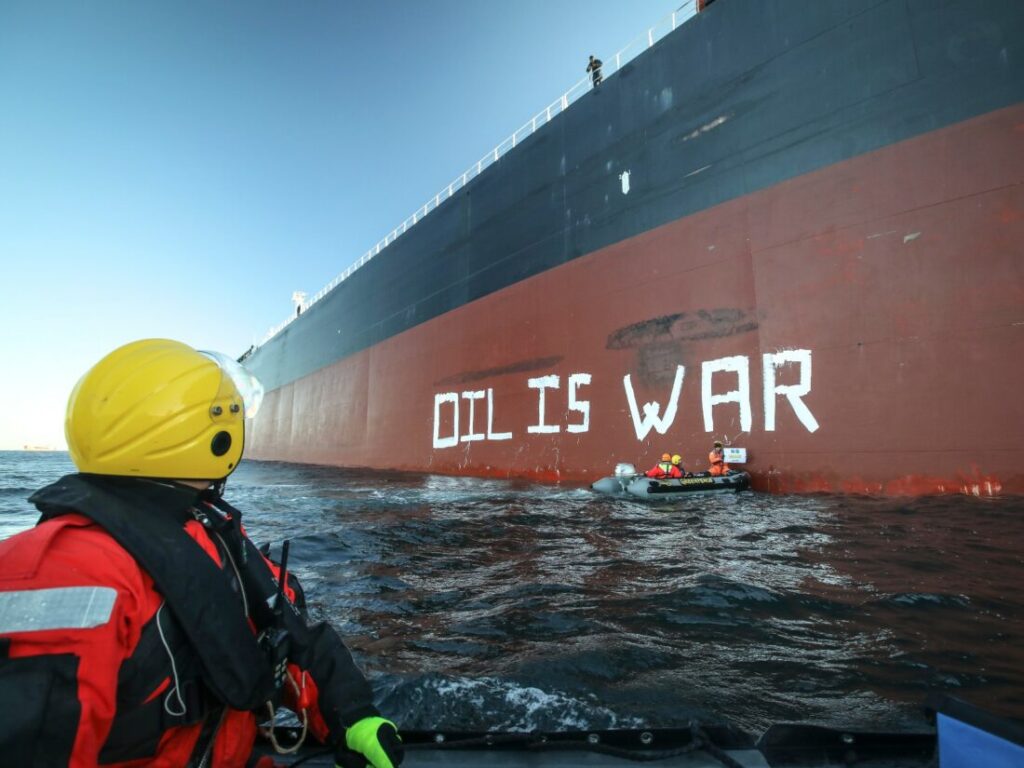
However, it appears of little concern to Greece’s shipowners. Melina Travlou, the Union of Greek Shipowners president, said at a June conference that the union condemned Russia’s actions in Ukraine, but added: “The Greek shipowners are not doing anything illegal, they are not breaking some embargo.”
For Viken, the largest Norwegian shipper during the period, its chairman told Investigate Europe there is little they can do apart from advising clients not to enter Russian ports. “As of today, our customers are not on any sanctions list, and Russian oil is a legal commodity,” he said. “The leases were entered into long before Russia’s invasion of Ukraine.”
In taking a stand against Russia, Europe’s own energy concerns are mounting. “We need to understand that the pre-war situation with abundant, cheap fossil fuels is not coming back,” Commission Vice-President Frans Timmermans said in mid-September. “The next winters – not just this one – will be difficult.”
Despite the public outcries, pending sanctions and global uncertainty, the lucrative sea crossings persist. As this piece went online, George Economou’s Malta-flagged Malibu was moving across the North Sea, piled high again with black gold cargo and topping up Putin’s war chest once more. Next stop, Turkey.
#Fuelling War is a joint investigation of Investigate Europe and Reporters United. Contributions: Lorenzo Buzzoni, Ingeborg Eliassen, Manuel Rico, Nico Schmidt, Amund Trellevik. Data visualisation: David Meidinger, Hendrik Lehmann (Tagesspiegel Innovation lab).


